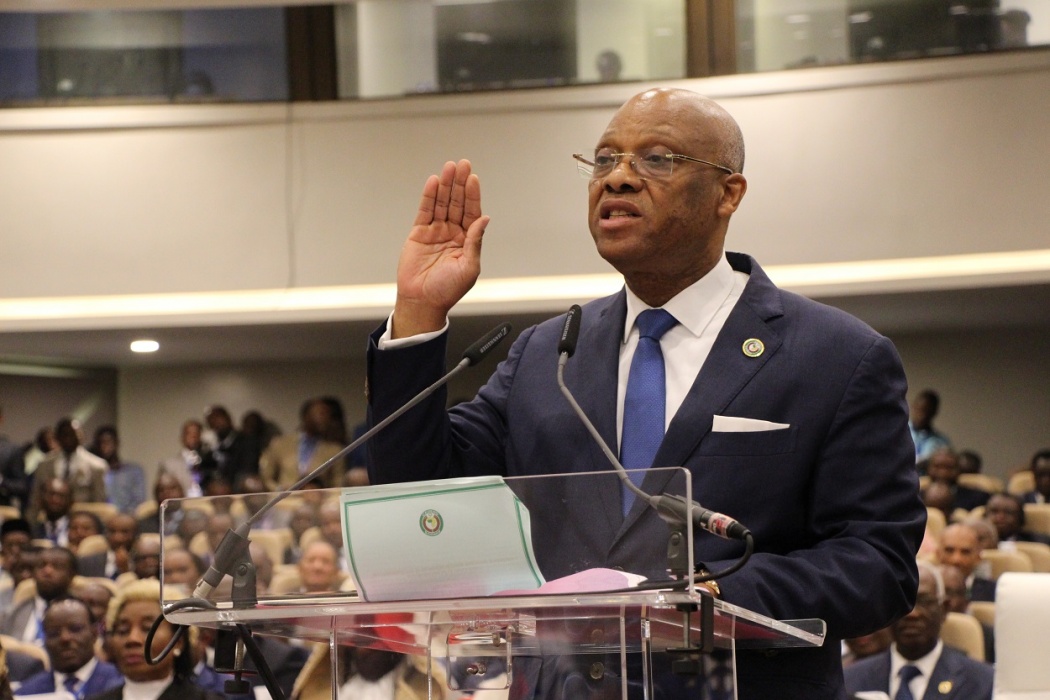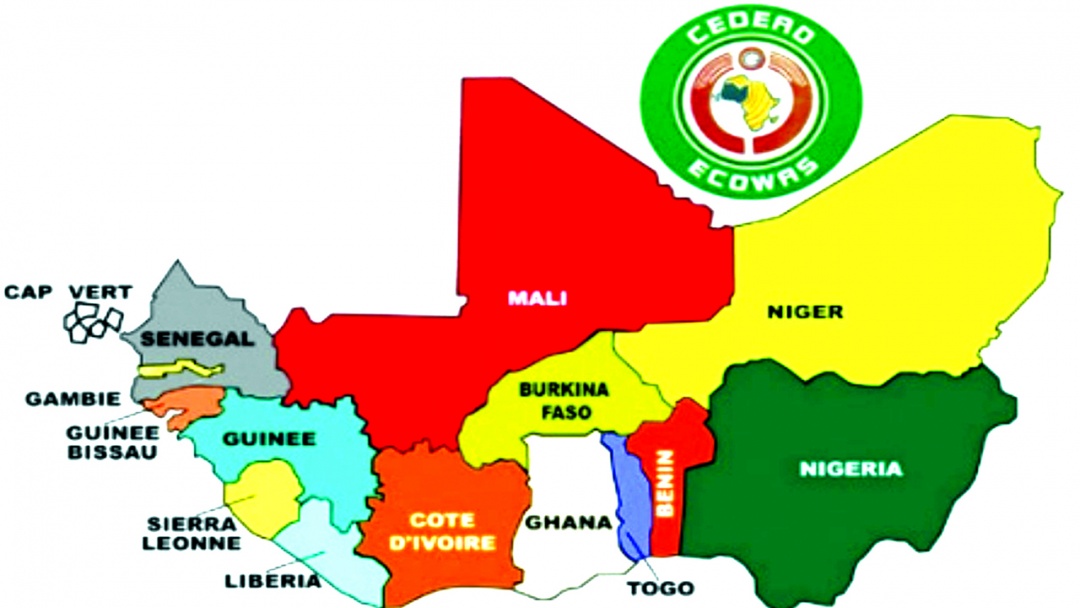By Peter Olorunnisomo – In Abuja, Nigeria last Tuesday, the ECOWAS Commissioner for Political Affairs, Peace and Security, Francis Behanzin representing the ECOWAS President disclosed that about 100 million illegal small arms and light weapons are in circulation in Africa.

Out of this, about 10 million weapons are in West Africa, the commission’s President, Jean Claude Brou further said in Abuja while fielding questions from journalists at a High Level Meeting of regional organizations on the Sahel.
He said the proliferation of firearms in the region was among the major causes of terrorism and other armed conflicts in West Africa and the Sahel.
In his opinion, this was a situation that was further aggravated by the vulnerability of countries to climate change, where erratic rains and persistent drought lead to recurring food crises.

“The lack of development opportunities for the young and increasingly growing population is fuelling illicit networks and organized crime,” he added.
He, however, said ECOWAS is resolutely committed to solving all these problems through numerous regional initiatives.
“The ECOWAS Sahel Strategy is structured around three strategic axes to have (i) connection infrastructure, (ii) resilience and food security, (iii) education as well as two cross-cutting issues: peace and security. It is accompanied by an action plan comprising 31 priority projects whose overall cost is estimated at $ 4.75 billion,” he said.
In the last decade, as has been even in several decades before, the proliferation of arms and the ease of international arms dealers to infiltrate the political consciousness of African leaders has always been exploited to the advantage of the trade in death.
Arms deals whether in small arms or more sophisticated forms has always found a ready market on the African floor. It has fuelled several insurgencies and played out the erstwhile cultural concepts of negotiation and peace processes.
Certain schools of thought would hold that the ‘might’ of colonial conquests established a veritable concept that undermined integrity, norms, socio-economic and political routes to ascendancy in the thirst form brazen power as an antidote to subvert compliance and respect for constituted authorities. The spate of coups in the 1960s and 1970s arguably support this.
At the occasion, the Special Representative of the United Nations Secretary General for West Africa and the Sahel, Mohammed Ibn Chambers, said the security situation in the Sahel and Lake Chad Basin remains fragile as increasing violence has bedevilled countries such as Mali, Burkina Faso, Niger and Nigeria.
“Violence and terrorist activities, as well as conflicts between nomadic herders and farmers take an alarming toll on the population and future generations.
“The violence related to pastoralism is particularly of concern as it increases in frequency, intensity, complexity and geographic scope,” Chambers said.
The recent addition to pastoral terrorism as a new motive for illegal arms acquisition, no doubt, challenges the sovereign disposition of these African countries to the use of arms for territorial and patriotic defence. But it does not serve these purposes totally when some of the terrorists are actually citizens. So who really are the enemies?
Illegal arms have flowed through Syria into the west African sub-region unabated and must have become a chief source of arms supply and mercenaries for the Boko Haram and other terrorist groups like Al-Shabaab.
It is critical to understand that the arms are not manufactured in Africa but the constant fuelling of estrangement and conflicts, provide ready and steady opportunities for wealth transfer through arms dealers which develops the East and the West but decimates Africa.
The never ending war in Congo and the growth of militia groups has been paid for in millions of lives, decimation and degradation of the environment, the near worthlessness in the value of human lives, and the exploitation of minerals in hundreds of trillions in foreign exchange.
The terrorism of Boko Haram has ensnared Nigeria, Cameroon, Chad, and Niger republic so well that the combined military efforts of these hasn’t obliterated the threats to peace and normalcy by Boko Haram.
However, Chambas, assured of the continuous commitment of ECOWAS and the United Nations to working in concert with the Sahel region to bring lasting peace, stability and inclusive, sustainable development to the Sahel.
The high Representative of the African Union for Mali and Sahel, Pierre Buyoya, who spoke through a representative, called for a more sustainable strategy for inclusive economic development in West Africa and the Sahel to provide the needs of a growing population.
Kindly follow us on twitter:@AfricanVoice2








